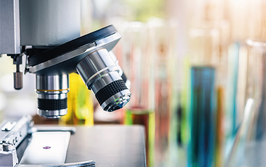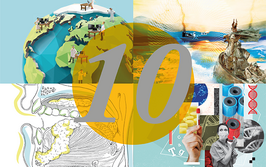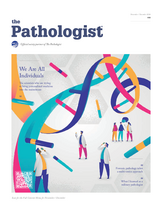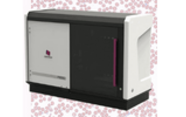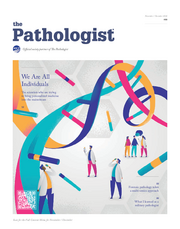A Transistor-Based Biosensor for COVID-19
A new biosensor may offer rapid COVID-19 detection
A field-effect transistor-based biosensor can detect SARS-CoV-2 from nasopharyngeal swabs in under one minute (1). Most tests for the novel coronavirus use real-time reverse transcription-polymerase chain reaction (RT-PCR), a technique that amplifies SARS-CoV-2 RNA. But this method takes at least three hours and requires manual viral RNA preparation. The new technique analyzes patient samples directly from a tube of buffer with no preparation needed.
The transistor consists of a sheet of graphene with high electronic conductivity, to which the researchers attached SARS-CoV-2 spike protein antibodies. When the virus binds to the antibody, it alters the current traveling between two electrodes – confirming the presence of SARS-CoV-2. In tests, the sensor was able to discriminate between not only COVID-19 patients and healthy controls, but also between SARS-CoV-2 and the virus causing Middle Eastern Respiratory Syndrome. Although 2–4 times less sensitive than RT-PCR, the team plans to explore different materials to improve the signal-to-noise ratio.
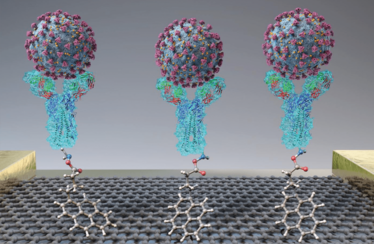
Adapted from ACS Nano 2020, DOI: 10.1021/acsnano.0c02823.
- G Seo et al., ACS Nano, 14, 5135 (2020). PMID: 32293168.
While completing my undergraduate degree in Biology, I soon discovered that my passion and strength was for writing about science rather than working in the lab. My master’s degree in Science Communication allowed me to develop my science writing skills and I was lucky enough to come to Texere Publishing straight from University. Here I am given the opportunity to write about cutting edge research and engage with leading scientists, while also being part of a fantastic team!






